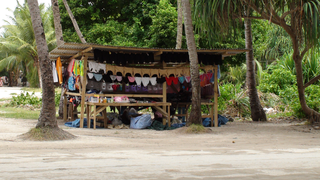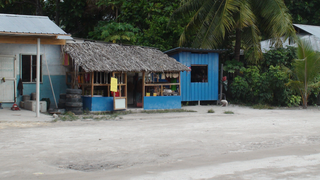Bubuti


Small Stores
Bubuti makes it difficult to begin as small business
Before Kiribati was colonised the basic unit of economic organisation was the "kainga". A "kainga" is a small group of extended families.
When Christianity and colonial rule were introduced people relocated from dispersed traditional lands to centralised villages. Kainga broke down and the immediate family/household became the most important economic unit.
Kiribati society has strong egalitarian values therefore affluence was discouraged. Equality was maintained through ostracism, shaming and sharing surplus wealth.
While much sharing was voluntary the "bubuti" system was key in maintaining equality as it forced those with a surplus to share it with extended family members in need.
The extended family members in need could make a "non-refusable request" to another family member who had to comply. Non-compliant family members would be shamed and ostracised as they were said to lack compassion.
Bubuti can act as a tax on working people and reduce their willingness to invest in business and has damaged economic growth. I-Kiribati entering into business are often subjected to the demands of bubuti from extended family members and this has led to many businesses failing.
A common strategy was for families to place a non-Kiribati family member as owner or manager of the business to prevent bubuti.
Bubuti is prevalent today.
